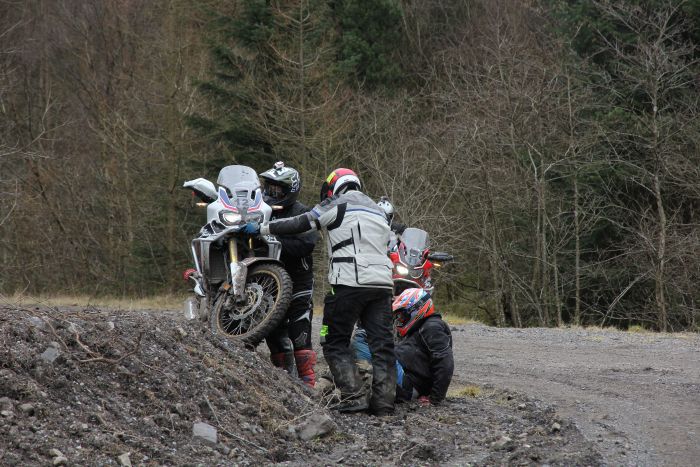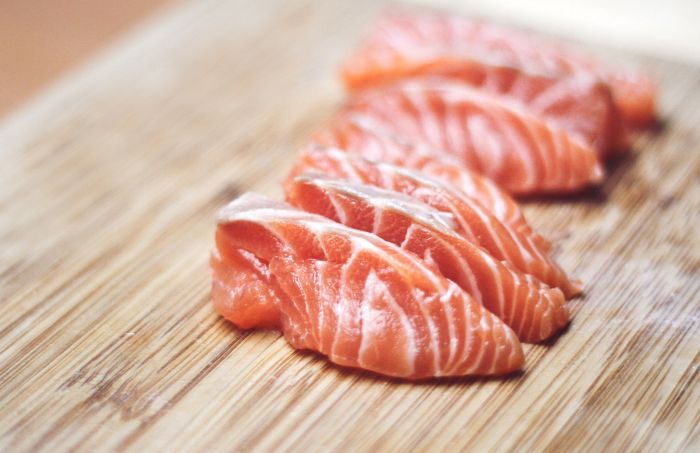Motorcycle riding is an inherently dangerous sport, but it’s a sport we love to do. Most of us wear helmets in order to prevent trauma to our head from the inevitable spills and crashes, but do we really know what to do if we take a whack to the head?
Johnathan Edwards takes us through the steps of how to deal with concussion after a motorcycle accident and what concussion actually is…
What is concussion?
A concussion is a trauma induced alteration in mental status that may or may not involve loss of consciousness. Headache, confusion, and amnesia are the hallmarks of a concussion and may be present immediately or even days after the event (especially in younger patients).
Knowing whether you had a concussion after hitting your head can be a difficult endeavour. I have personally seen many riders continue on the trail the entire day after hitting their head and ride as if nothing happened.
Then, I later learn that they did not remember riding the trails or motocross track. The point is if you hit your head and you have a headache, confusion, or amnesia, get some help immediately.

Many symptoms are subtle and include headaches, persistent neck pain, slowness of thinking and speech, getting lost, confusion, constant fatigue, decreased energy, lack of motivation, mood changes, changes in sleep patterns, difficulty remembering, concentrating, making decisions, and dizziness.
Major concussion symptoms include visual problems, loss of smell, ringing in the ears, nausea and/or vomiting, and passing out. If you experience major symptoms after hitting your head, you should proceed directly to the nearest hospital.
What should be done once a concussion occurs?
If you think you have a concussion you should certainly present yourself to a hospital for evaluation. Most hospitals will run an MRI scan to determine if there is any physical damage to the brain. Realise that most of the studies will be negative.
Once you are cleared from the hospital, rest is one of the key factors. By rest, I mean you should do what your body tells you. If you feel so bad that you have to stay in bed than that is probably what you should do.
If you feel more energetic and awake then certainly go take light walks in the sunlight, get back into nature a little bit, and try to engage your brain in activities like reading or learning another language.
Recovering from a concussion
Most people don’t think that there is much you can do after a concussion has happened. But, there are actually plenty of things you can, and should, do to speed up recovery and ensure you’re caring for your brain as well as possible.
Decrease inflammation through diet and supplementation
It is clear from research that the brain heals better when avoiding glucose, fructose, and other processed carbohydrates in your diet.
In fact, the benefits of putting yourself into a state of nutritional ketosis by eating a diet high in fats and low in carbohydrates is supported by research. By ketosis I mean that your body is using fat for energy, either from consuming a high fat/low carb diet or fasting.
Consume healthy fats

Photo: ais3n
Make sure you get your fats from healthy sources such as those from fatty fish, freshly pressed oils, pasture raised meat, and DHA (Docosahexaenoic acid, an omega-3 fatty acid) fish oil supplements.
Fish that contain the highest amounts of DHA are easy to remember by thinking of the SMASH diet. This stands for Salmon, Mackerel, Anchovies, Sardines, and Herring.
Other supplements that decrease inflammation are high levels of curcumin and coconut oil (MCT oil).
Vitamin C/Glutathione/Vitamin E
Vitamins C, E, and glutathione have all been used in the treatment of TBI (traumatic brain injuries) and are thought to decrease the free radical induced oxidative damage and cell membrane damage that can occur. However, the studies that are out there show that a high dose vitamin C is what is most effective.
Glutathione actually goes to work inside your cells to protect your mitochondria and your liver produces a certain amount of glutathione naturally
However, many factors including diet, toxin exposure, alcohol, medications, stress and ageing can all deplete your glutathione supply – leaving you vulnerable to oxidative stress and free radicals.
A good way to increase glutathione is by taking the N-Acetyl L-Cystiene (NAC) packets found in most pharmacies.
Vitamin D3 and K2

Photo: eltpics
On to more vitamins, consume a blend of vitamins D3 and K2, both of which have been shown to help with brain injury. Vitamin D and K should really be thought of as one vitamin since they work together.
The more important point in talking about vitamins D and K is that most people are deficient in these anyway. There are estimates that up to 70% of people are deficient in vitamin D and deficiencies are associated with significant impairment in cognitive performance. Don’t forget about sunlight exposure to increase vitamin D.
Decreasing stress in the body
This entails decreasing excess stress hormones produced by the body. Of course it’s difficult to manage as stress can be caused by numerous things, though decreasing stress is paramount around the time of a brain injury and that is why most doctors recommend rest during the initial period and, if severe enough, the patient is put into an artificial coma.
The best things to help in this regard are music, meditation, controlling light, controlling noise, getting enough sleep, and patience. This is where having a therapist can pay off, because being able to talk about things in a controlled environment can relieve stress.
Brain Nootropics
Nootropics are called smart drugs, memory enhancers, neuro enhancers, cognitive enhancers, and intelligence enhancers. They are the drugs, supplements, nutraceuticals and foods that are said to improve certain aspects of mental function.
Specific effects can include improvements to working memory, motivation and attention. All of these are affected in brain injuries. Many doctors will prescribe nootropics during the period of a brain injury for several reasons.
Amphetamines such as Adderall and methylphenidate are prescribed to help improve performance on memory, control and task completion. Wakefulness promoting agents such as Modafinil increases alertness, particularly in patients with brain injury and sleep deprivation.
Adaptogenic herbs

Photo: Tatters
Adaptogens are compounds that increase the body’s resistance to stress, trauma, anxiety, and/or fatigue. If you want a ready-made package of adaptogenic herbs, Tianchi is one of the best on the market.
Magnesium
Magnesium can have neural calming and anti-inflammatory effects and has been shown to help in the treatment of brain injuries. Magnesium is an essential dietary mineral, and the second most prevalent electrolyte in the human body.
Optimising sleep
Optimising sleep is complex and has many steps. Apart from the many supplements that exist to improve sleep quality, it is important to be sure that you do not develop apnea, which is one thing that can happen to people who have brain injuries. You can purchase monitors for in-home use to see if you have apnea or not. This would be well worth the investment.
Brain stimulation
Now, all this refers to when it comes to brain stimulation are the different cognitive training games. Examples are Luminosity and Brainscape. Learning a second language is effective treatment for a brain injury as well. Use an app such as Duolingo.
All of this information may be overwhelming, but if it can help even one person get better after a concussion, it’s worth it!
Information in this article is not intended to replace the advice of a medical doctor nor the treatment you may receive in a hospital. If you have an injury to your head, please have it properly evaluated by a medical professional.

